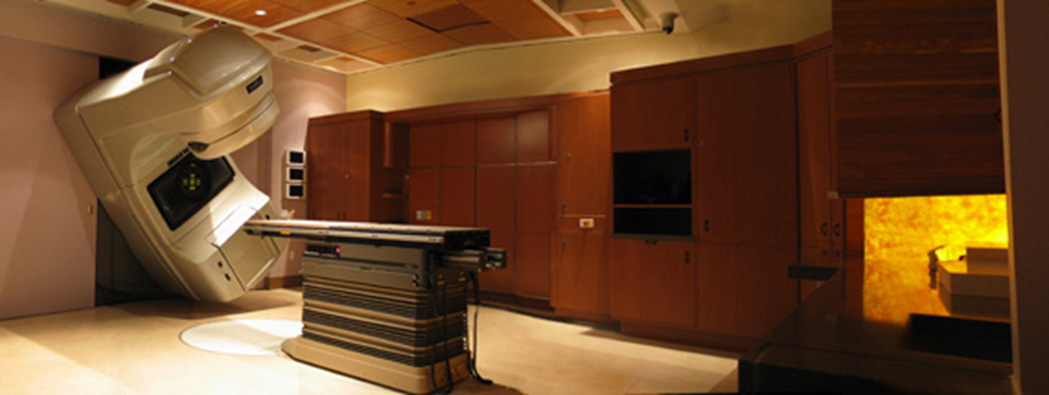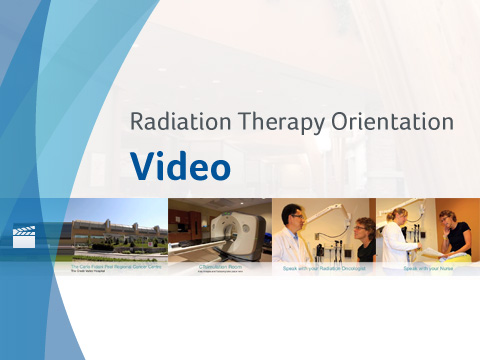
The Radiation Program at the Carlo Fidani Regional Cancer Centre uses leading-edge cancer treatment technology. The inviting open concept treatment and waiting areas complement the state-of-the-art equipment that is used to deliver some of the most advanced treatment options available:
- Image Guided Radiation Treatment (IGRT)
- Volumetric Modulated Arc Treatment (VMAT)
- Stereotactic Body Radiation Treatment (SBRT)
- Brachytherapy Treatment
- Stereotactic Radiation Surgery (SRS)
Our team consists of radiation oncologists, nurses, radiation therapists, social workers, and dietitians. Our team approach to treatment delivery is the philosophy of our program. By relying on the power of teamwork we have created efficiencies that help us maintain timely access to care. The philosophy of teamwork is also essential to our innovations around quality of care as we continually seek to go beyond the traditional boundaries of health care.
As a new radiation therapy patient you will be given a
Radiation Therapy package (Green folder) at your first radiation appointment. In this folder you will find important information about your radiation treatment.
For information about Radiation Therapy at the Carlo Fidani Regional Cancer Centre, read the
Patient Radiation book

Helpful Questions & Answers about Radiation Therapy
Q: Does radiation therapy hurt?
A: No, radiation is like getting an x-ray.
Q: What are the possible side effects of radiation therapy?
A: The side effects that you may experience will depend on the amount of radiation delivered and the area of your body being treated. Before you start your treatment, your health care team will take a personalized approach and educate you about the side effects that you may experience during your treatment and give you tips on how to manage them. Always let your health care team know about any side effects you experience, even if they seem minor.
Q: Will I be radioactive?
A: If you have external beam radiation treatment the answer is no, you will not be radioactive. You can still enjoy the same contact with family and friends without fear of exposing them to radiation.
For most types of Brachytherapy Treatment the answer is no, you will not be radioactive. Some Brachytherapy treatments use radioactive sources which are put into your body and are not taken out. Your health care team will tell you if this is the type of treatment you will have.
Q: What is a tattoo?
A: A tattoo is a permanent freckle sized mark or dot that will always be on your skin. Tattoos are used by the radiation therapists to find the precise area of your body that will be treated every day.
Q: How long does it take?
A: The radiation machine is only turned on for a few minutes for each treatment. The radiation therapy appointments are about 15 minutes long. It takes this amount of time to make sure that you are in the same position for the treatment every day. However there are some procedures, like Brachytherapy, that may take longer than 15 minutes and you will be told about that before your appointment.
Q: Do I have to come every day for treatment?
A: The radiation oncologist will tell you how many treatments you will have. If you are to have many treatments you will likely come every day for treatments.
Q: Can I come at any time for my treatment?
A: You will be given specific appointments, and you will be notified ahead of time if changes need to be made.
For more information about Radiation Therapy and side effects, visit our
Patient and Caregiver Education Materials & Community Resources Library
